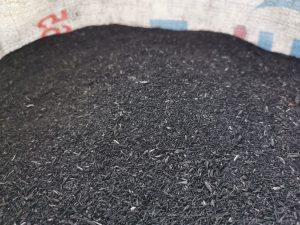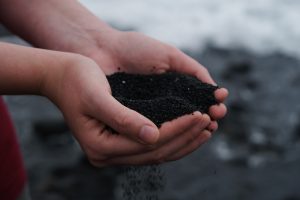What Is The Use Of Rice Husk Ash In Malaysia

What is the use of Rice Husk Ash in Malaysia

What is Rice Husk Ash?
Rice husk ash (RHA) is an abundantly available and renewable agriculture by-product from rice milling in the rice-producing countries. It has the highest proportion of silica content among all plant residues.
Rice milling industry generates a lot of rice husk during milling of paddy which comes from the fields. This rice husk is mostly used as a fuel in the boilers for processing of paddy. Rice husk is also used as a fuel for power generation.
Rice husk ash (RHA) is about 25% by weight of rice husk when burnt in boilers.
The resultant of burning rice husk is either completely burnt or partially burnt which gives colors ranging from white to grey or black. Rice husk ash got a great demand in Civil, Industrial and Agricultural sectors.
An additional benefit of using rice husk as a biomass fuel is from the ash after the rice husk has been combusted. The Rice Husk Ash (abbreviated to RHA), is particularly high in silica (Si). Silica is an important raw material for many purposes, and RHA is therefore becoming increasingly valuable. Some of the uses of Silica are identified below:
- Aggregates and fillers for concrete and board production.
- Economical substitute for micro-silica / silica fumes
- Absorbents for oils and chemicals
- Soil amelioration
- Source of silicon
- Insulation powder in steel mills
- Repellents in the form of “vinegar-tar”
- Release agent in the ceramics industry
- Insulation material for homes and refrigerants
Agriculture Benefits Of Using Rice Husk Ash in Malaysia
The benefit of using Rice Husk Ash are follow:

- Attracts and Increase soil nutrients
Rice husk ash provide a dense source of carbon which, when composted, can increase the water and nutrient holding capacity of soil, improve soil aggregation, porosity, infiltration, and many other key beneficial soil physical characteristics.Rice husk ash provide a dense source of carbon which, when composted, can increase the water and nutrient holding capacity of soil, improve soil aggregation, porosity, infiltration, and many other key beneficial soil physical characteristics.

- Slow-Release Fertilizer
The advantages of using slow-release fertilizers instead of the conventional type are various, such as the increased efficiency of the fertilizer, the continuous supply of nutrients for a prolonged period and a decrease of nutrient losses by volatilization and leaching out to surface and ground waterThe advantages of using slow-release fertilizers instead of the conventional type are various, such as the increased efficiency of the fertilizer, the continuous supply of nutrients for a prolonged period and a decrease of nutrient losses by volatilization and leaching out to surface and ground water

- Plant growth media
Plant growth media containing rice husk ash in substantially amorphous state and having a porous skeletal structure are disclosed. The rice husk ash is incorporated in naturally occurring soils or so-called synthetic or potting soils. If desired, water swellable binders or polymers can be incorporated with the ash in such soils to enchance their water retention properties. The porous rich husk ash in amorphous form combines synertistically with the soil or soil components to provide desirable growing characteristics as set forth.Plant growth media containing rice husk ash in substantially amorphous state and having a porous skeletal structure are disclosed. The rice husk ash is incorporated in naturally occurring soils or so-called synthetic or potting soils. If desired, water swellable binders or polymers can be incorporated with the ash in such soils to enchance their water retention properties. The porous rich hull ash in amorphous form combines synertistically with the soil or soil components to provide desirable growing characteristics as set forth.

- Corrective of soil acidity
Rice husk ash serves as a corrective of soil acidity. It reacts much faster (with a reactivity of about 300 %) than conventional limestone, but has a low effective calcium carbonate equivalent (around 3 %), due to the very low neutralizing value (around 1 %).Rice husk ash serves as a corrective of soil acidity. It reacts much faster (with a reactivity of about 300 %) than conventional limestone, but has a low effective calcium carbonate equivalent (around 3 %), due to the very low neutralizing value (around 1 %).
Want some Rice Husk Ash ? Please Contact Lee Sekam Padi Bakar for details!
Our Rice Husk Ash is an Eco-friendly product, suitable for various industries ranging agriculture farming to organic fertilizer industry. If you want rice husk ash, please contact Lee Sekam Padi Bakar today for free quotation.
Pembekal Sekam Padi Bakar Rice Husk Ash Malaysia Sekam Bakar Malaysia Sekam Padi Bakar Malaysia

